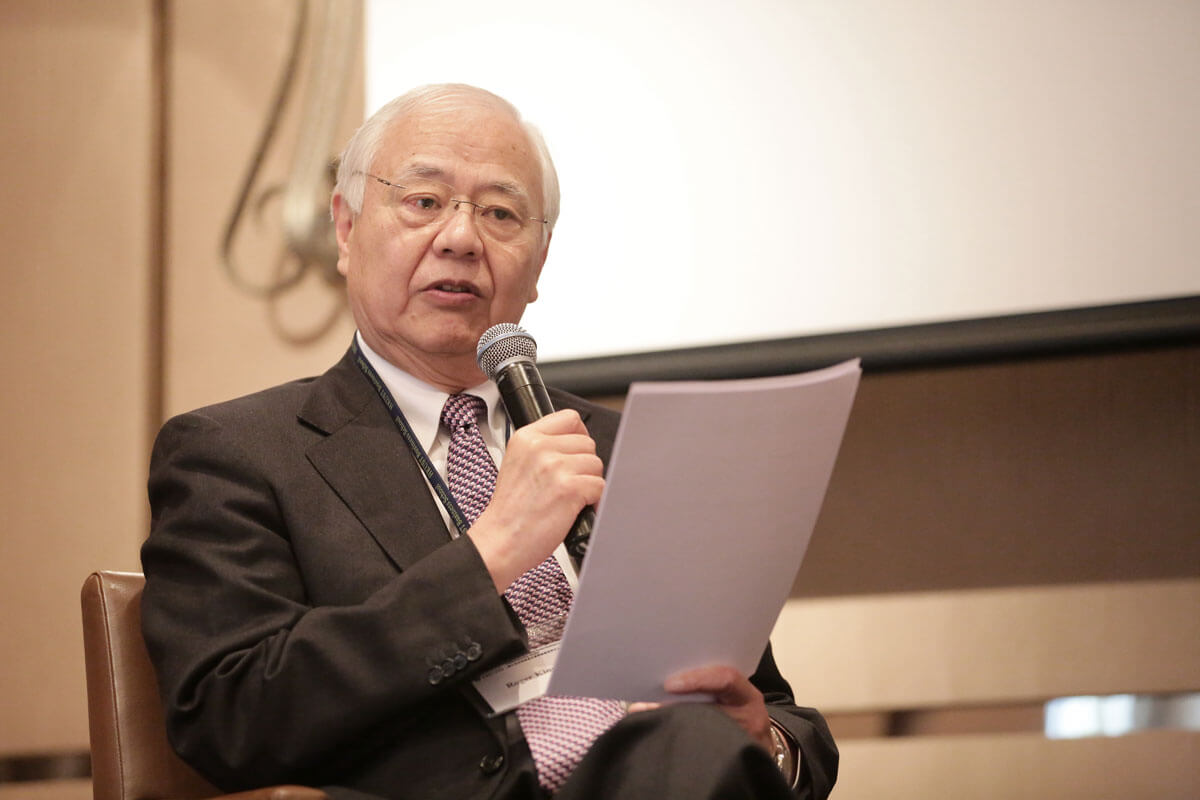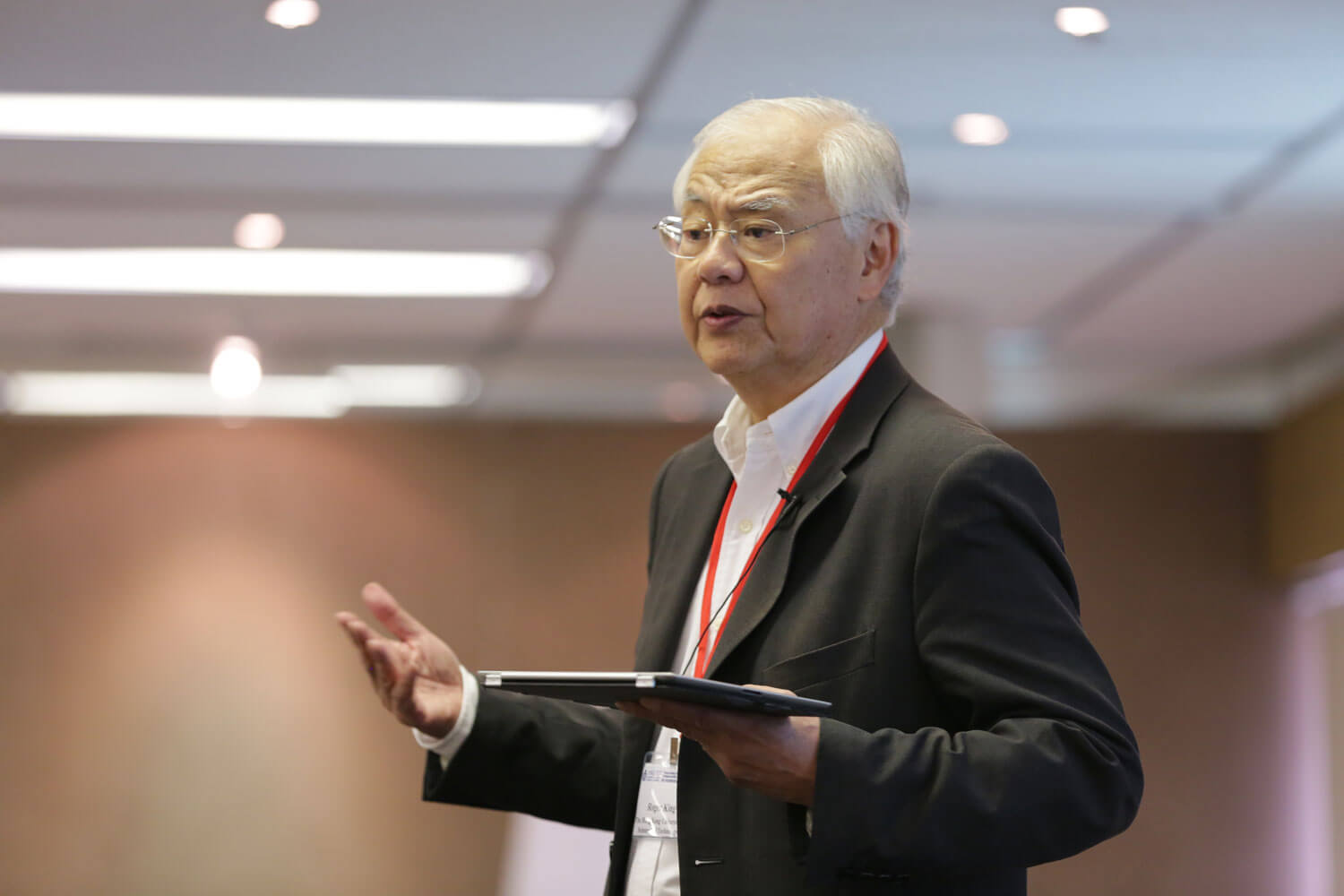Interview with Prof. Roger King, Tanoto Centre for Asian Family Business and Entrepreneurship Studies
Established just six years ago as part of The Hong Kong University of Science and Technology (HKUST), the Tanoto Centre for Asian Family Business and Entrepreneurship Studies is contributing new knowledge pertinent to Chinese family businesses and entrepreneurs.
Professor Roger King is the founder and director of the Centre. He is a serial entrepreneur and also comes from a family business himself. Professor King is passionate about bridging the gap between academics and practitioners. He has also taken on other roles related to the academic study of family business, such as a seat on the editorial board of the Journal of Family Business Strategy.
Tharawat spoke to Professor King about the Centre’s activities, the current state of Chinese family businesses and the challenges of succession.
What were the objectives in establishing the centre?
The centre is founded on three goals:
Firstly, we want to provide education through our Executive MBA program and other tailor-made executive courses. To make our courses deeply embedded in reality, we invite family business leaders and professionals to be our guest speakers. For example, after we wrote a case on succession planning at Crown Worldwide, the largest privately owned company in the field of international removals, the Chairman Mr. Jim Thompson agreed to share his experiences in one of the classes. Our students asked sharp questions and gave feedback from different perspectives, so the discussion was interactive and thought-provoking not only for the students but also for our guest speaker. Jim concluded the class by saying it was one of the best consulting services he had ever received – all for free.
Our second goal is research. Our main focus is on ethnic Chinese family businesses though we also conduct comparative research. We publish our ideas in mass media and submit studies to academic journals. Recently we studied the role of family offices and how they can be adapted to the Asian context. Chinese families tend to keep an arm’s distance with professional advisors because they perceive family affairs to be too private to be handled by outsiders. The Western concept of family offices, on the other hand, with its systems and rules, can be perceived as too structured and legalistic by Chinese businesses. We believe a middle ground can be found that family offices can be the glue that keeps a Chinese family closely together. Family members, including those less active in the business, can be responsible for key functions of the family office based on their expertise and experience. Family offices can and should be managed by the head of the family and be bound by Chinese hierarchical relationships.
Our third aim involves events. Each year we organise several gatherings for academics, practitioners and policy-makers. We have also collaborated with organisations such as the World Economic Forum. Our platform offers first-hand, real-life experience in family businesses and best practices, both for Asians and by Asians.

What research focuses are being pursued at the centre?
It has been well recognised that family businesses are an important part of national economies. In Hong Kong, nearly 70% of listed firms are family-owned. They contribute greatly to their communities through job creation and philanthropic work. We want to raise awareness as to why family businesses are important to society as a whole. They should be supported and recognised by policy-makers and politicians. We’d actually like to engage politicians in our programs and events, and make them more aware of the consequences of their policies on family business. The go-to solution is always to tax the rich, but such policies can disincentivize family businesses from making the extra effort.
What issues do Chinese family businesses face?
Chinese family businesses face many issues that are very similar to other family businesses. Over the past two centuries the world has evolved and changed. Globalisation and westernisation have imposed ways of measuring performance, even in Asia. But Asians have started to recognise that there are elements of their own culture that should be preserved. The collectivist culture here shapes people to be focused on family first. We worship our ancestors twice a year, which provide families with an opportunity to reflect on why they are together. There can be a generational gap when second-generation Chinese family business members who are educated abroad return home, and take somewhat different views from their parents. Part of the future challenge will be to bridge that gap.
I believe we can do this by focusing on the family construct itself. My wife is part of a large family business that is active in container shipping. The family is closely knit and are all involved in the business or the family in some form or other. The third generation has taken managerial positions, but the second generation, made up of five siblings, remains directly involved. My wife is the family historian. Others are involved in philanthropy. The fourth generation looks promising, with many recently accepted into Ivy League universities. Most importantly, every year for three to four days the entire family of over 50 members gets together, travelling across different continents to do so. These family retreats underline what is truly important to the success of a family business: maintaining the value system. Everyone needs to be educated as to how to take responsibility and ensure sustainability.

Are the next generations willing to take over?
Family businesses come in all varieties. Some young people may feel their family’s businesses are old-fashioned, or that they are too small to be of interest. Some studies suggest that close to 80% of the next generation in mainland China doesn’t want to get involved in or take over the family business. What is overlooked is that these young people all want to become entrepreneurs. The question is whether the older generation can accept their choices.
Families business founders need to ask themselves what it is they really want. We have identified three Ps:
Wealth Preservation: They want future generations to be better off.
Legacy Preservation: They want to preserve values like respect.
Harmony Preservation: The key ingredient of family continuity in and outside the business.
Founders usually want to make a better future for the next generation. The businesses tend to be hierarchical though they can also be vehicles that preserve value systems. The younger members must pay their respect to their elders and honour their ancestors. We often ask what is more important, family or business? In our society it is still family I would say. The older generation should, therefore, welcome a next generation that is, at the least, entrepreneurial.
[ms-protect-content id=”4069,4129″]
How should families choose successors?
We developed a concept we call CCKP, from our studies of enduring family businesses such as Li & Fung, Lee Kum Kee and Eu Yan Sang. Instead of selecting by birth order, we believe it is more useful to evaluate successors according to these four criteria:
Commitment: How committed is the next generation member to the business?
Confidence: How much self-confidence does the next generation member have, and can it withstand the criticism of the older generation?
Knowledge: Business life cycles are getting shorter and shorter, so being knowledgeable is crucial to thrive.
Passion: If you don’t have passion you simply can’t do it.
I guarantee that if your successor is missing any one of those four qualities, the chances for success are zero. Having all four, however, doesn’t necessarily guarantee success. If successors are not evident, whether it is in ownership or management roles, families should consider bringing in outside talent or selling the business. Why not pass the wealth on to the next generation? People should be willing to consider alternatives.
How does the centre help and support Chinese families going through succession?
As an educational institution, we make it a point to invite professionals and practitioners to share their insights. Of course, the current generation hopes that the next generation will take over, but we neither endorse nor discourage this view. We simply try to suggest that there should be a clear distinction between desiring a takeover in terms of management or in terms of ownership. Our position is that if you really value family, then you should value the family’s continuity. One way you can do so is by allowing the next generation to leverage the social capital of the family business. What’s wrong with the next generation starting a new business?
Tharawat Magazine, Issue 29, 2016
[/ms-protect-content]














